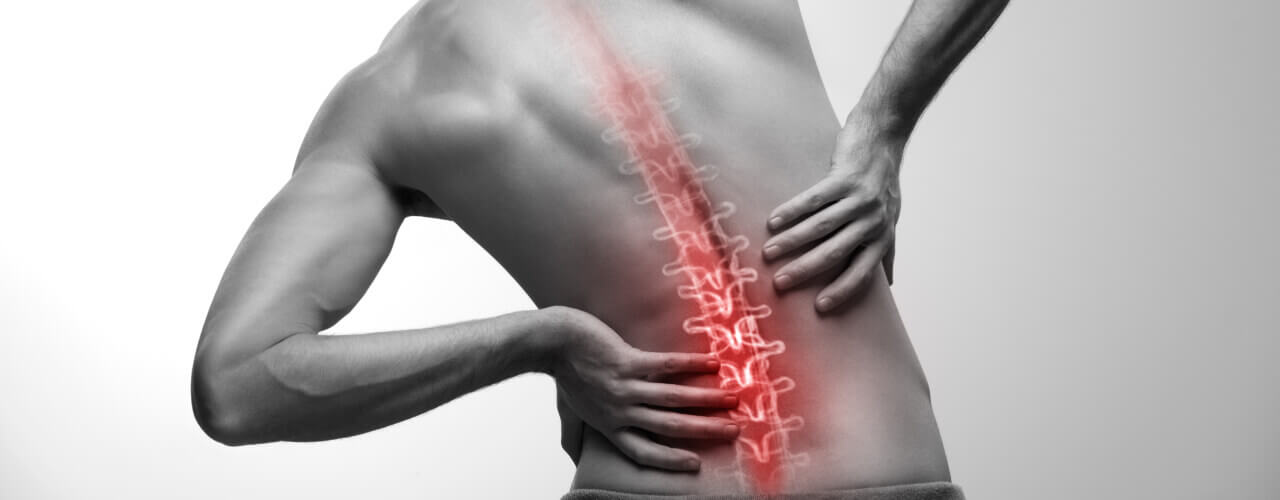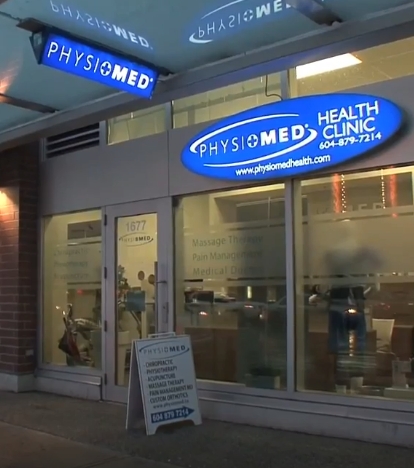Is your back constantly aching? Can you not seem to relax or engage in your usual activities? If so, please contact Physiomed Vancouver to make an appointment with one of our physiotherapists.
Our skilled team can help you reduce or eliminate your pain.
What is chronic back pain?
The majority of back pain is temporary. It lasts anywhere from a few days to a few weeks.
Chronic back pain is defined as pain that lasts three months or longer. This type of pain can be caused by a number of factors, including spinal arthritis, aging, disc problems, and myofascial pain syndrome.
Around 20% of people who experience back pain will develop chronic back pain with persistent symptoms. Chronic back pain is ranked third among the most burdensome conditions for Americans.
What could be the source of my chronic back pain?
The vast majority of chronic back pain causes are mechanical in nature. Some of the causes are as follows:
- Intervertebral disc degeneration
- Radiculopathy
- Herniated discs
- Sprains and strains
- Traumatic injury
- Sciatica
Sprains and strains are caused by muscle tears, improper twisting or lifting, or overstretching. Disc degeneration occurs when the spine’s rubbery discs lose their integrity and no longer function as a cushion between discs. Herniated discs happen when the discs compress and bulge outward.
Radiculopathy is caused by a spinal nerve root injury, inflammation, or compression. It can also happen with a herniated disc.
Sciatica is a type of radiculopathy caused by sciatic nerve compression. Because the sciatic nerve is so large, compression to it can cause a burning or shock-like pain that radiates to the leg and feet. It may also cause leg numbness and weakness.
Falls, car accidents, and sports can all result in traumatic injuries. As a result of a traumatic injury, damage to the ligaments, muscles, and tendons can result in chronic back pain.
What effect will physiotherapy have on my chronic back pain?
Physicians frequently recommend physiotherapy to patients suffering from chronic back pain. The goal of physiotherapy is to reduce back pain, improve function, and educate patients on how to avoid future recurrences. A physiotherapy program usually consists of two parts: passive treatment and active treatment.
Ultrasound, ice and heat therapy, TENS units, electric shock, massage, and stabilization techniques are examples of passive treatments. Stretching and targeted exercises are used in active treatments.
Physiotherapists also provide patients with chronic back pain with a home exercise program. Physiotherapy also assists those suffering from chronic back pain in avoiding the use of pain medications and surgery. Heat and cold therapy can be used to improve blood flow, decrease inflammation, and alleviate pain. Ultrasound is a common passive modality used by physiotherapists. Ultrasound is a form of deep heating that uses sound waves to penetrate soft tissue.
“In chronic low back pain, the physiotherapy exercise approach remains a first-line treatment and should be routinely used,” according to the NBCI.
To retrain the deep muscles, stabilization exercises may be included. Before beginning any exercises to stabilize the spine, your physiotherapist will demonstrate how to use the appropriate spinal and abdominal muscles. Another method for relieving chronic back pain is manipulation. To reduce pain and increase mobility, short and rapid thrusting movements are performed over a joint.
This method not only relieves back pain, but it also promotes healing of the affected area. A physiotherapist may order a transcutaneous electrical nerve stimulator (TENS) unit. This device aids in the suppression of painful signals sent to the brain. It is suitable for long-term use at home.
Another common treatment for chronic back pain is deep tissue massage. This manual method improves healing by increasing oxygen and nutrients to the affected areas while also reducing muscle spasms and stiffness.
If you have chronic back pain, please contact our Physiomed Vancouver to request an appointment.
Are you ready to find relief?
Our physiotherapists will review your medical history, assess your function, and determine your range of motion before developing a personalized treatment plan to get you back on track.
Our goal is to improve your quality of life and assist you in carrying out your daily activities. Contact Physiomed Vancouver to get started.



